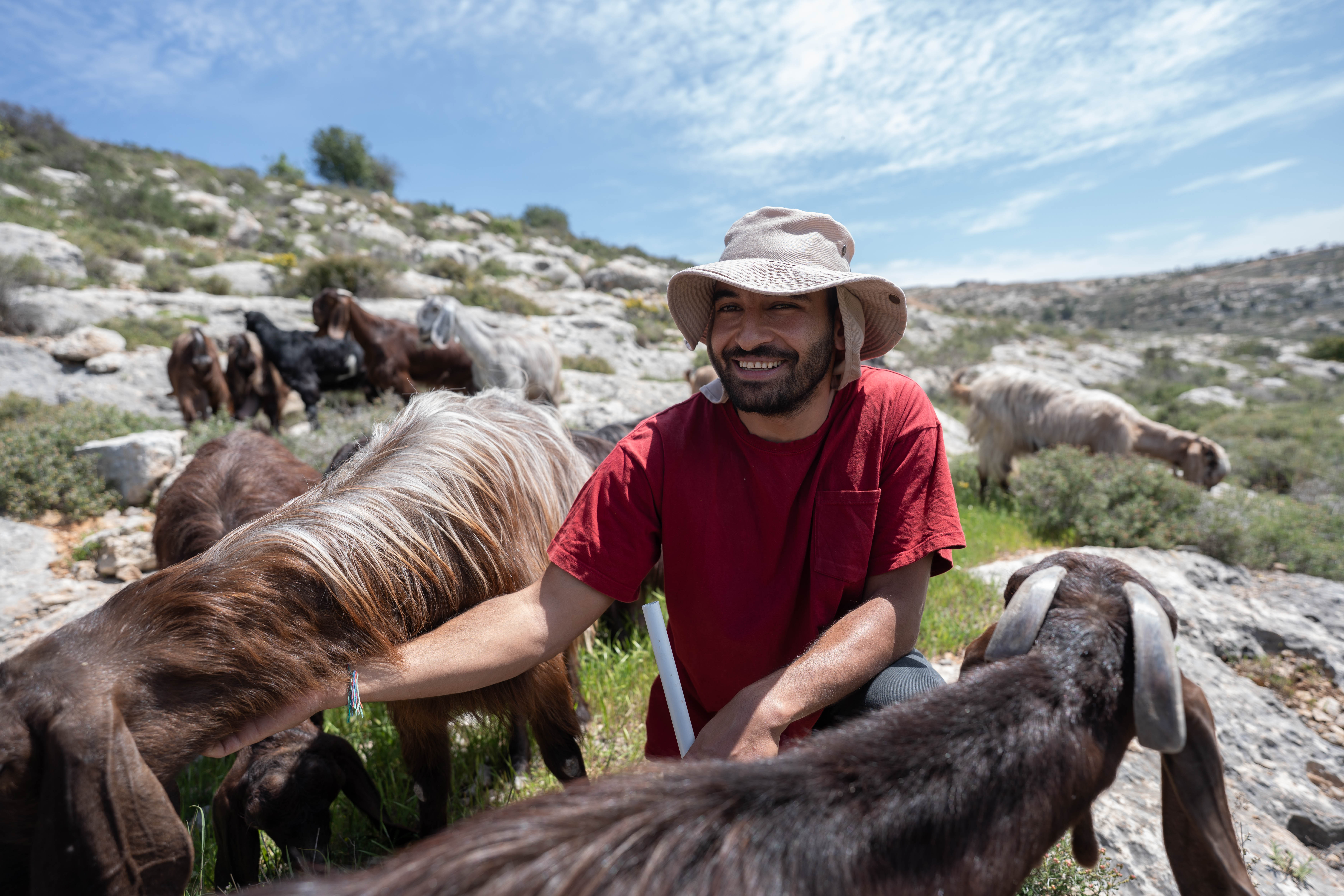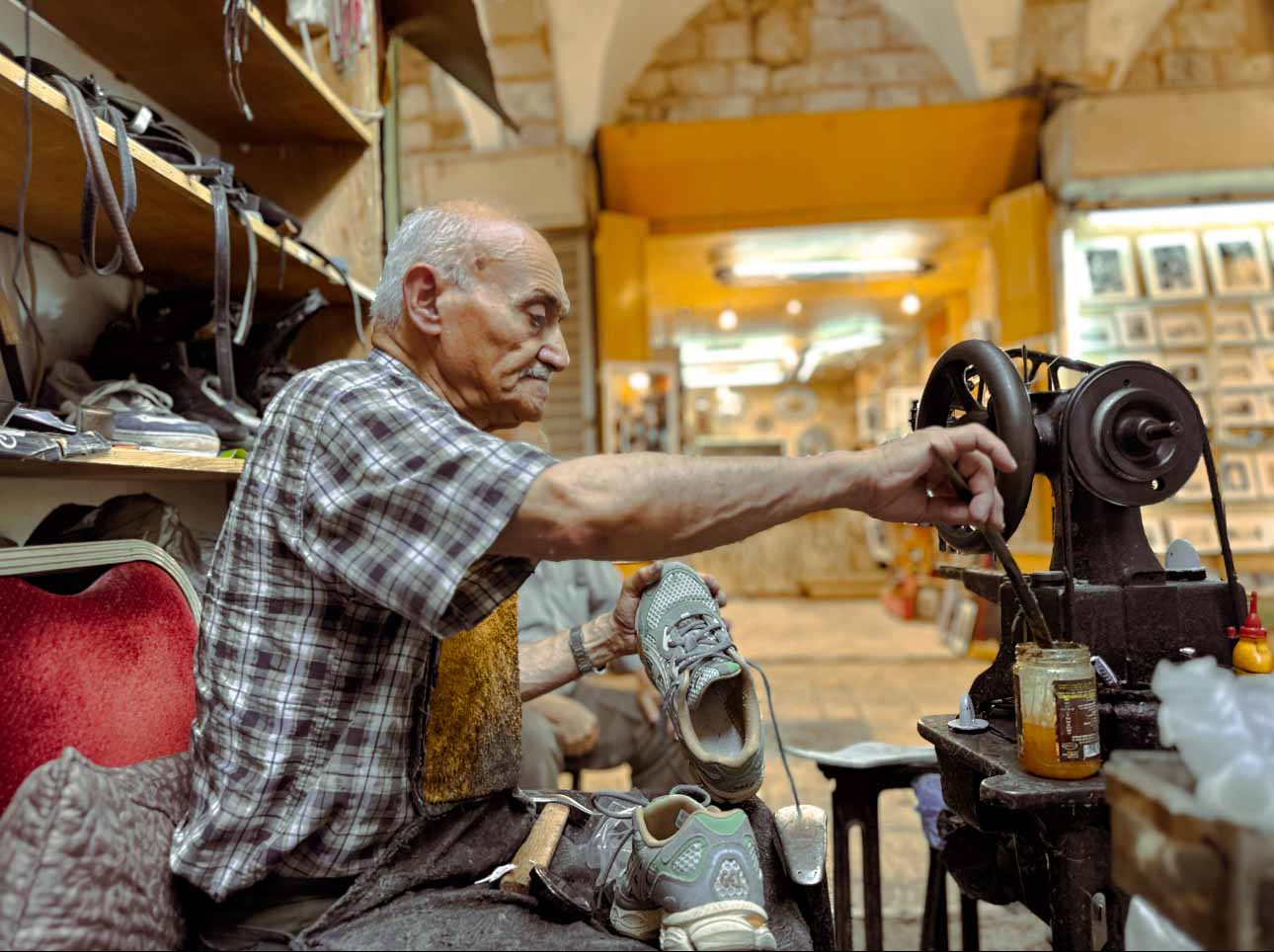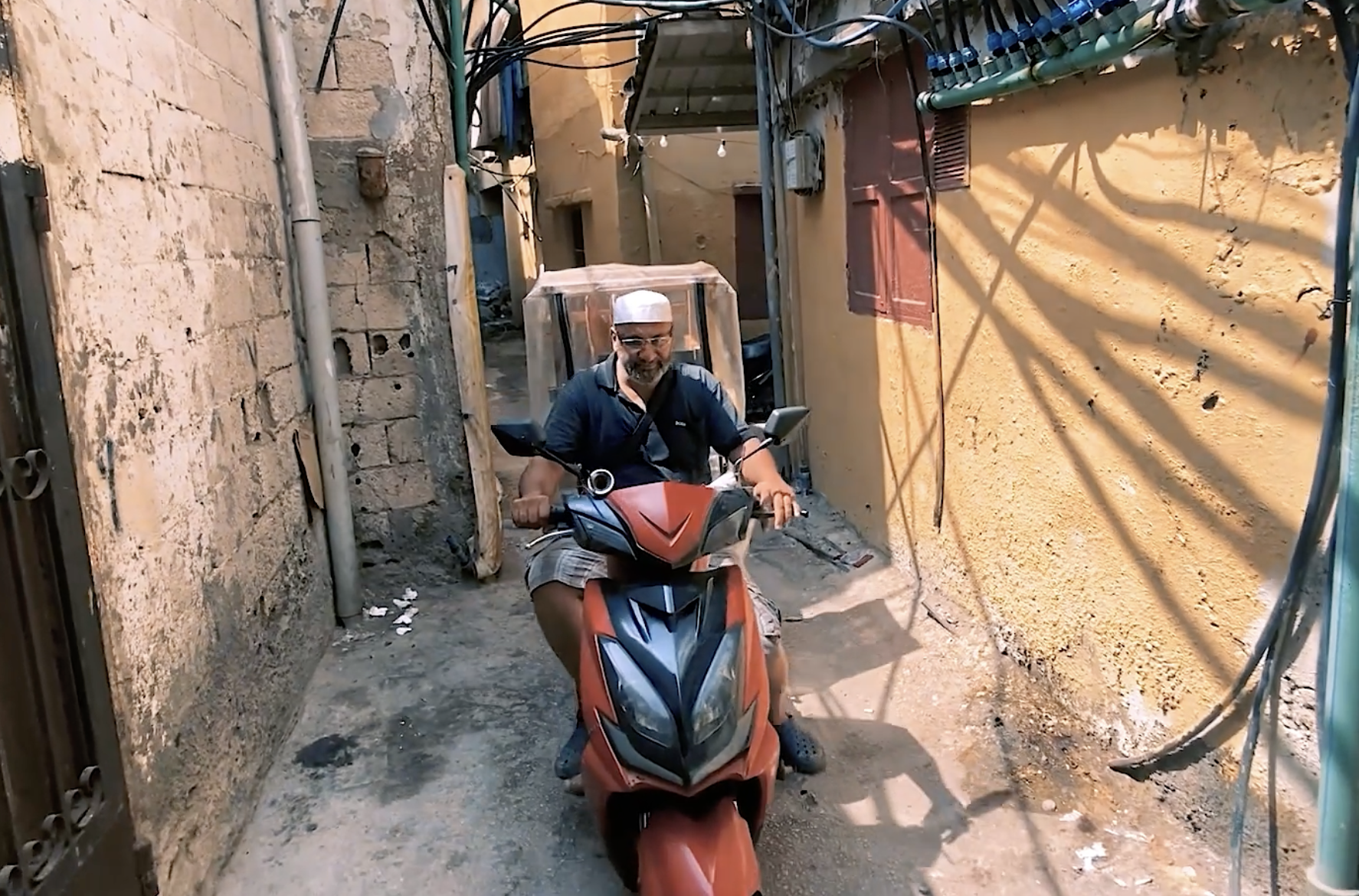“Fattoum, this goat, is a leader. She refuses to walk anywhere but at the front. If another goat gets ahead of her, she pushes it back. She has to be the one leading.”
– Mohammad Khweira, a shepherd from Kafr Ni’ma
Mohammad Khweira, a young man from the village of Kafr Ni’ma, is a goat shepherd, a farming trainer, and a dabke dance instructor with the El-Funoun Dance Troupe.
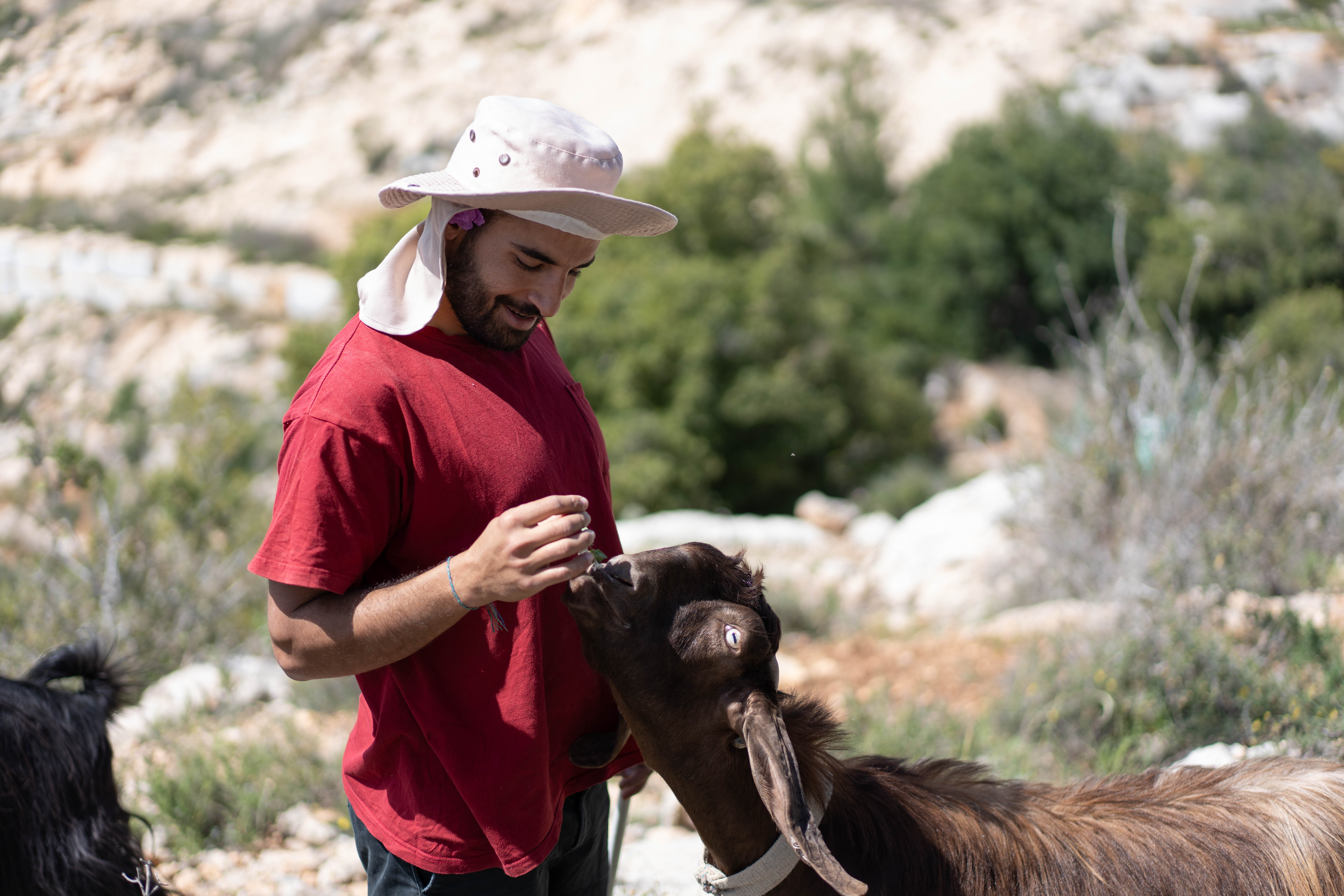
Mohammad chose shepherding because he doesn’t see himself behind a desk or doing routine work. He says, “I’m a son of the land. I love it, and I truly love the goats. Without my relationship to them, I am a stranger to myself.”
He learned to love goats from his mother over thirty years ago, when his family was living in Al-Wehdat refugee camp in Jordan. “My love for goats originally came from my mother. Thirty years ago, she had eleven goats—she used to tend to them, milk them, and make cheese.”
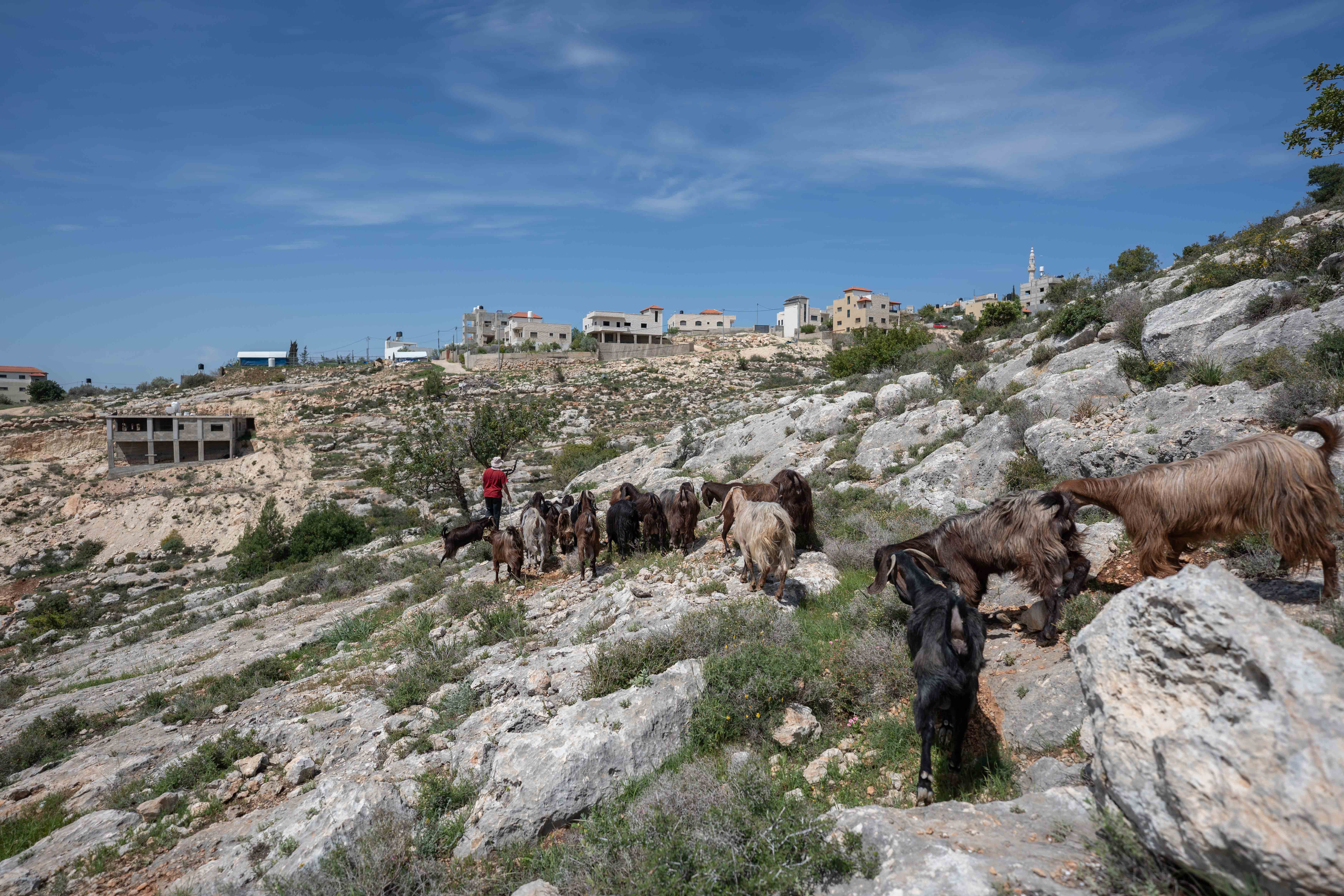
After the family moved to Kafr Ni’ma in Palestine, his mother resumed raising goats. “My mother treats the goats like her daughters, and I inherited that from her.”
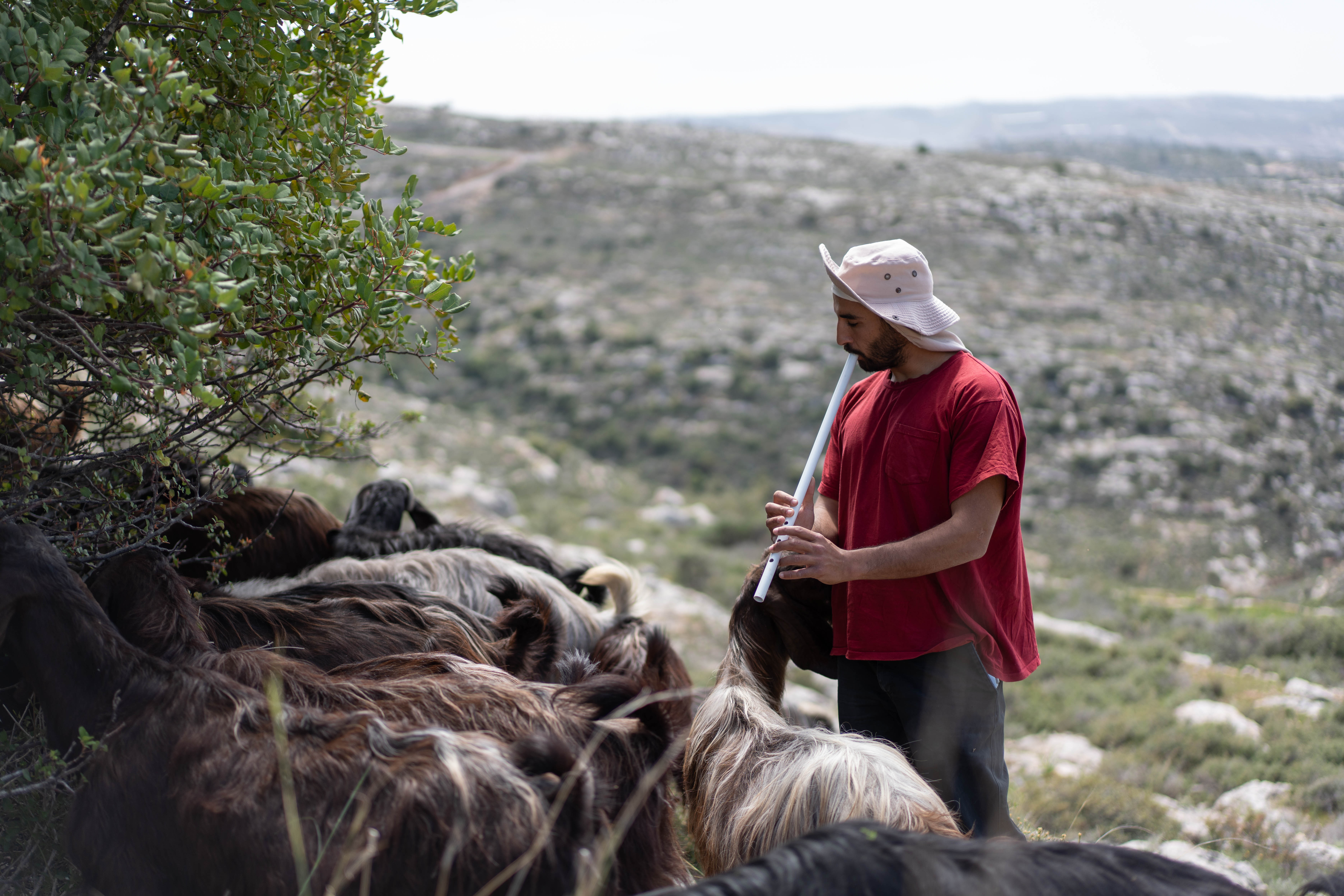
For Mohammad and his mother, each goat has its own name and personality—like Ra’d, Fattoum, and Zahwa. “But Fattoum, she’s a true leader. She refuses to walk anywhere but at the front, and if another goat gets ahead of her, she’ll push her back.”
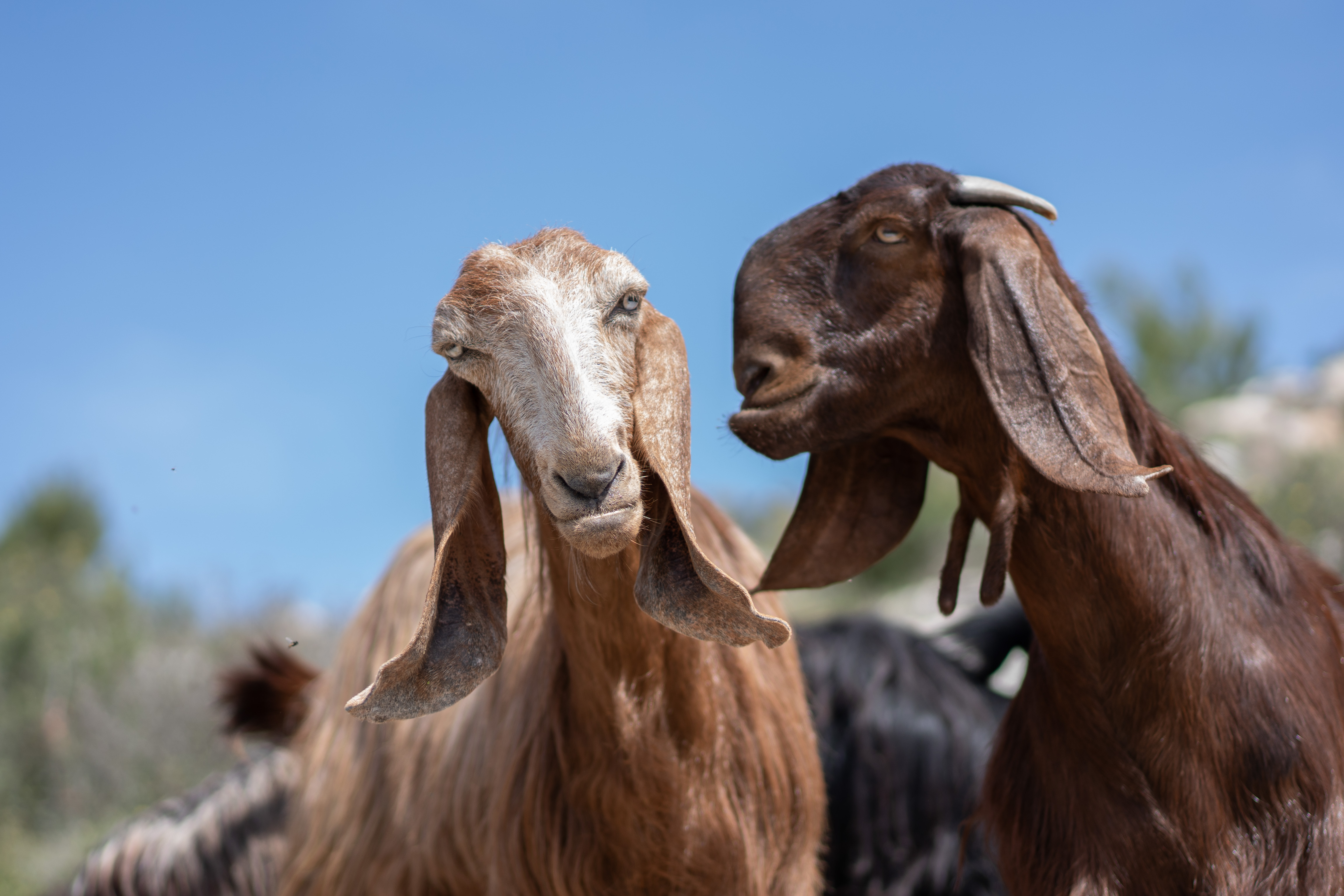
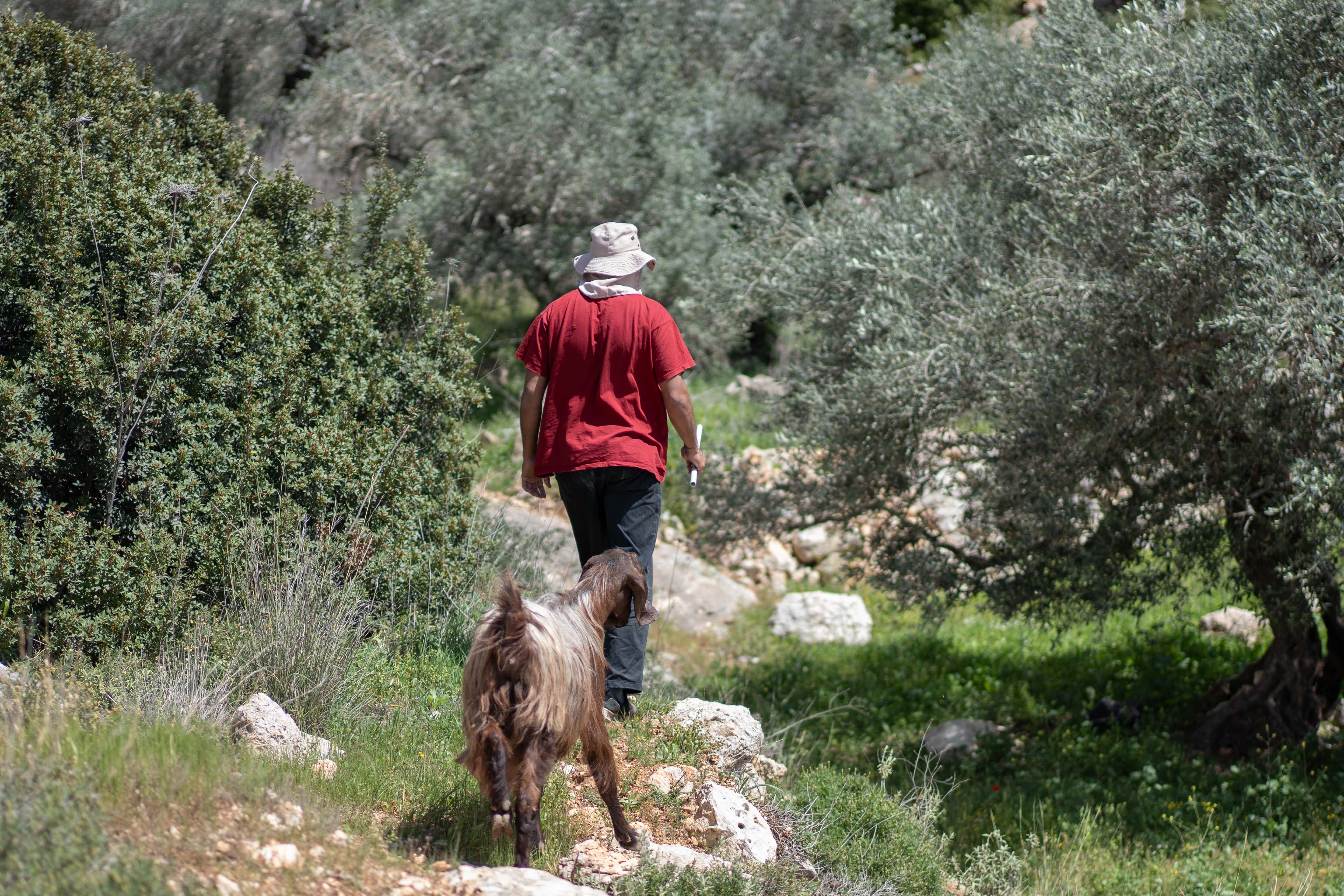
Like many shepherds, Mohammad faces numerous challenges, such as water scarcity, limited grazing land, and the growing presence of settlers around his village. He used to graze his goats in nearby areas like Jabal al-Risan, located between Kafr Ni’ma and Ras Karkar. But today, “a settler is constantly present at the top of the mountain,” he says. “The land we used to graze in has become forbidden to us.”
The village of Kafr Ni’ma, like many Palestinian areas, faces ongoing settler violations—uprooting trees, destroying agricultural wells, and attacks on farmers and villagers.
